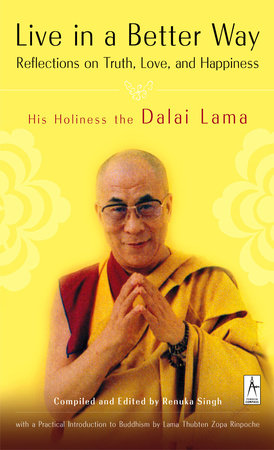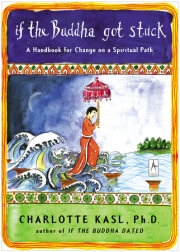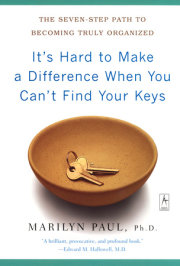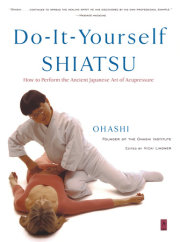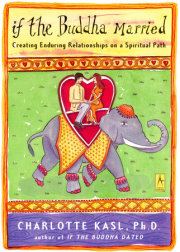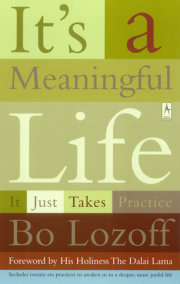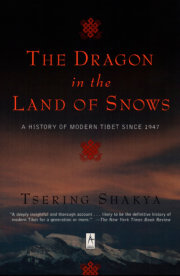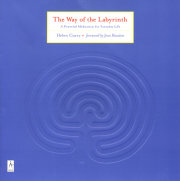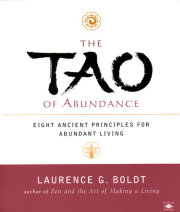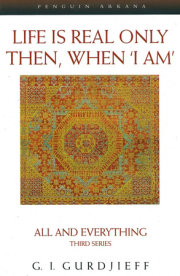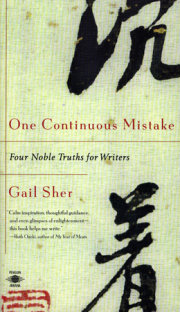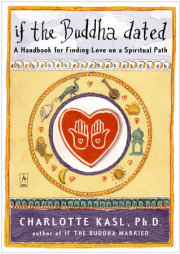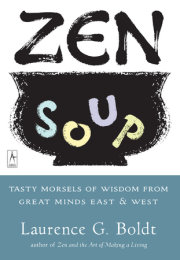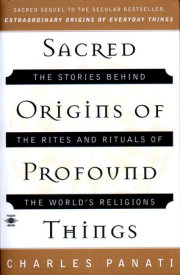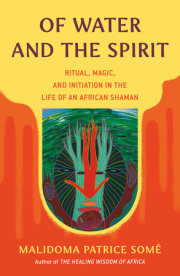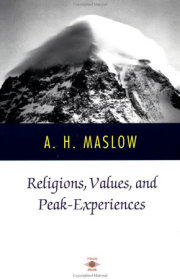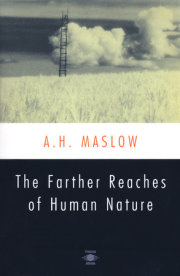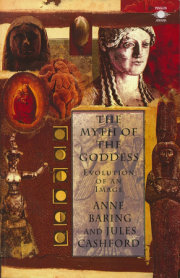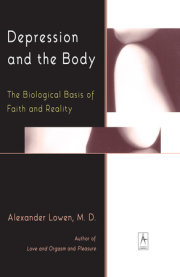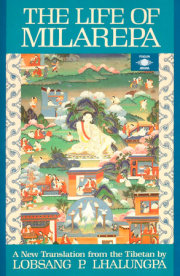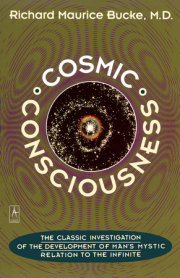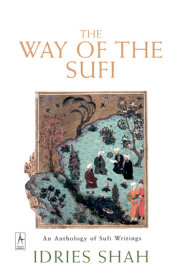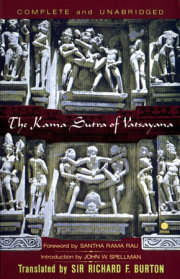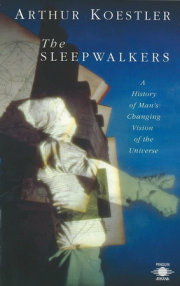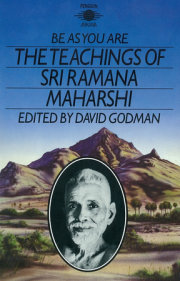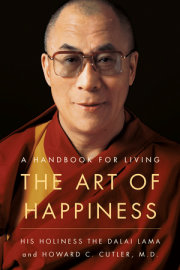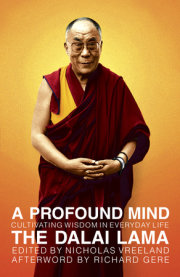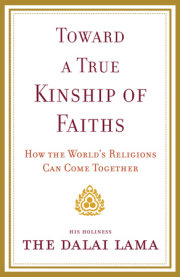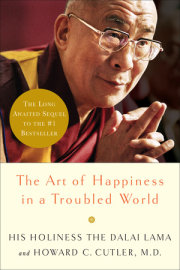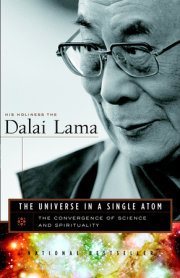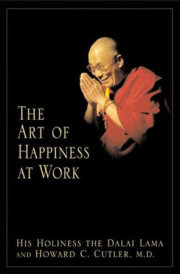Transforming Mind
In order to practice Buddhism, you have to first know about the mind. Even if you are a nonbeliever you can try to improve or train the mind, provided you have knowledge of it. Any normal human being, for that matter, can practice training the mind and this will eventually prove to be very useful.
Essentially, this is what the Eight Verses are about. They teach us how to deal with our negative emotions and subsequently improve or transform our mind. As a practitioner, you must pay heed to your mind to constantly try and control it. You should try to eliminate all negative emotions and develop positive ones-infinitely-particularly in the practice of Buddhism, since some people say that Buddhism is the science of the mind.
Everyone wants happiness; nobody wants to suffer. Many problems around us are a mental projection of certain negative or unpleasant things. If we analyze our own mental attitude, we may find it quite unbearable. Therefore, a well-balanced mind is very useful and we should try and have a stable mental state.
Everybody wants a healthy body and nobody wants to be sick. I, for one, don't like falling ill but very often I get a cold-especially when I visit Buddh Gaya. Almost every time I am there, the blessing is so great that I always get flu! But the fact remains that everybody wants good health, and one of the important means for attaining it is a stable mind.
Mental training is crucial for good health. Good health and stability of the mind signify a good and happier life and a sound future. Although a person may be in a hostile environment, if one's mental attitude is firm and stable, the hostility will not be a cause for much disturbance. Without inner mental stability, or the right mental attitude, one cannot be happy, calm or at peace, even if one is surrounded by the best of friends or the best facilities. This is why training the mind is imperative and should not be considered a religious matter. Some technique or method for training the mind should be a part of everyone's daily life. The mind is colorless, formless and difficult to identify. Yet, it is powerful. Sometimes it seems difficult to check, change and control. I think much depends on time, will, determination and wisdom. If we have determination and wisdom-wisdom implying knowledge-the point, then, is how to train the mind. Eventually, with the passage of time, our mind can change and improve. For example, of my parents, my mother was extraordinarily gentle and had a lot of patience, whereas my father was very short-tempered. In the early part of my life, I was much closer to my father, and thus more prone to anger. During the latter part of my life I was closer to my mother and therefore much calmer. I learned from both of them. Traditionally, Tibetans believe that the people who come from the Amdo area are more short-tempered and straightforward. Since I belong to that area, I have a good excuse for my anger!
You can train your mind by analyzing the shortcomings of anger as well as from other people's experiences. It is also useful to look at history. Whenever I examine human tragedy, I find that in most cases it is the result of human behavior-negative emotions such as anger, hatred, jealousy and extreme greed. All good things that are constructive, happier human experiences, are mostly motivated by respect for others' rights and concern for others' well-being-compassion, love and kindness.
A very thorough investigation of past human experiences and events, and one's daily practice, is imperative to bring about change and improvement. We human beings are similar in our desires. This is why training the mind is important.
The Eight Verses explain the importance of altruism, and how to preserve it when we come across difficult situations in our daily life. For human beings as well as animals, the foundation of society is affection or love. During the period when we are in our mothers' wombs, the mother's mental stability and calmness are very important for the development of the unborn child. Also, the first few weeks after birth are a crucial period for development of the brain. During that period it is extremely important to have the mother's physical touch. This shows that the physical condition itself needs the warmth and affection of others. The human baby's first act after birth is sucking milk. Giving or receiving milk certainly does not stem from hatred or negative feelings. Although at that time the baby's mind is not clear and does not have a clear idea of its mother, a bond or feeling of closeness is definitely established. However, if the mother's mind has anger or some negative feelings toward the child, the milk may not flow. It is deep affection and a feeling of intimacy toward the baby that allows the milk to flow properly. And turning to the mother for milk is our first act as human beings.
Over the next few months and years we are heavily dependent on others, mainly our parents or guardians. Without their kindness and responsibility, the child cannot survive. As students, we find that if a teacher is affectionate or close to us, then the lessons as well as the teacher leave a lasting impression on us.
From time to time we need to visit doctors even if we don't want to. Although the doctor may be highly qualified, if the doctor's face is stiff and bereft of a smile, we feel slightly uncomfortable. If the doctor shows genuine concern about our health and is affectionate, we feel comfortable.
When we get older, we depend heavily once again on the affection and kindness of others. This is human nature. Since human beings are social creatures, we depend heavily on one another in order to survive.
Even small animals and insects like bees and ants possess some kind of social instinct. They have a great sense of responsibility and work together in tandem. If we look at bees, we find that they work on the basis of cooperation even though they have no religion, constitution or laws. Their natural form and way of life demand that they work together; otherwise, they cannot survive. Humans claim to be superior beings but we are, in fact, sometimes inferior to these small insects. Our basic situation demands that we live together, and, hence, we work together. It is a natural law but sometimes we act in quite the contrary manner.
According to Buddhism, plants have no mind or consciousness. As a Buddhist monk, I say they have no consciousness, but I don't know, it's difficult to tell. I think we need to investigate further. Some people say that plants have some kind of feeling or cognitive power. Even without consciousness or mind, their very existence is based on the cooperation of each particle and cell. Each particle has a special duty or role and all the particles work together to allow the plant to survive and develop. Similarly, the function and existence of the world, the planet itself, even the universe, depend on cooperation.
Different parts of the human body work together, allowing us to function effectively. Our existence and survival depend on the cooperation and coordination of these parts. Take, for instance, the human family. In the absence of cooperation and understanding, parents and children are always fighting. The same is true of quarrels between couples. Divorce ensues and no peace or happiness remains. The marriage is ruined. Cooperation is imperative for a healthy family, body, society and nation. How does one develop cooperation? By force? Impossible! So what is the alternative? Voluntary actions, altruism and showing concern for the welfare and rights of others. These need not be considered sacred; they are in one's own interest because one's survival depends on it. For example, if you are concerned about other people and genuinely friendly toward them, then other people will also respond appropriately.
I love smiles and laughter. If one wants more smiles in one's life, one must create the right conditions for it. There are many different kinds of smiles. Some smiles that are diplomatic or sarcastic create an unpleasant atmosphere and give rise to suspicion, whereas a genuine smile gives us a great deal of satisfaction. So how does one achieve that? Certainly not through anger, jealousy, extreme greed or hatred, but through loving kindness, an open mind and sincerity.
If your motives are sincere, there is nothing to hide, and you get an open attitude in return. This is the real and proper channel of human communication and not mere lip service. From my own experience, sometimes I find I can communicate sincerely even when I don't know the other person's language. But at times it is difficult to be candid.
When people have power, others tend to flock around them. I think I have more friends now because of the Nobel Peace Prize. These friends may not be very reliable. People with fame, power or wealth usually have many friends. These friends, in fact, may not be true friends; they are attracted only to the wealth or power of the person concerned. If the person loses his power or wealth, these friends may disappear. I consider such friends insincere.
True friends share genuine closeness and remain friends irrespective of fluctuating fortunes. Such concern for others is a great virtue but it is also selfish in a way since it's ultimately for one's own benefit and interest. Very often I tell my friends that if we have to be selfish, we should be wisely selfish. If we are sincere we will have reliable friends and benefit greatly. If you neglect others, forget about their welfare and think only about yourself, eventually you'll be the loser.
Thus, the basic structure of human society requires a sense of responsibility based on altruism and compassion. The ultimate source of happiness is altruism. Success in life depends on determination, will and courage. And the source of this courage and determination is altruism. Sometimes anger and hatred create a kind of energy and determination. This determination, however, rarely has good consequences because the energy created by anger and jealousy is blind, harmful and can even be fatal.
The Buddhist technique or method to improve the mind is based on the theory of interdependence, or pratityasamutpada. This is mainly concerned with the causes of pain and pleasure and the fact that everything is interlinked, creating a chain reaction. As I mentioned earlier, satisfaction or happiness depends on a variety of factors. Therefore, pratityasamutpada actually widens our worldview. It shows us that everything is ultimately related to our benefit. Naturally, this enables us to develop concern for the wider perspective. Understanding this theory and actually putting it to practice can promote loving kindness and compassion, and reduce one's anger and hatred.
According to Buddhism, there is a commensurate relationship between cause and effect where pain and pleasure are concerned. The immediate cause is karma. Karma means action. Tomorrow's events depend very much on today's actions, this year's events on last year's, while this century's events are linked with those of the previous centuries. The actions of previous generations affect the lives of the generations that follow. This is also a kind of karma. However, there is a difference between actions carried out by a group of people or sentient beings jointly, and actions carried out by a single person. In individual cases, the actions of the earlier part of one's life have an effect on the latter part of one's life.
What, then, is the source of action? What is the motivation of mind? And, more important, what is mind? Is it the brain or a kind of energy produced by the brain? The answer is both. It is both because while the grosser level of consciousness is produced by the brain, the ultimate source of consciousness is the innermost subtle consciousness that is not dependent on the brain. So what is the cause of ultimate and innermost subtle consciousness? There are two causes: a "substantial" cause and a "cooperative" cause.
Human beings took five billion years to develop to their present human state. For three to four billion years there was no life, only some basic, primary cells. In spite of human evolution, the question still remains, Why did the whole universe or galaxy come into existence at all? What is the reason? We could say that there is no reason or that it suddenly happened, but that answer is not satisfactory.
Another answer is that it was the creator's, or God's, doing. However, this view does not hold true for Buddhist and Jain philosophies. The Buddhist answer is that it came into existence as a result of the karma of the beings who would utilize these galaxies. Take the example of a house. A house exists because there is a builder who constructs it so that it can be used. Similarly, because there were sentient beings to inhabit or utilize this galaxy, their karma produced the galaxy.
We cannot explain this on a physical basis, only on the basis of the continuation of mind. The most subtle consciousness or mind has no beginning and no end. That is its ultimate nature. I am not talking about absolute nature here. Even on the conventional level, ultimate nature is something that is pure. The grosser mind with its basis of consciousness has its own ultimate nature that is pure. It can be influenced by negative emotions as well as by positive thought. All negative emotions are based on ignorance and ignorance has no solid basis.
According to Buddhist philosophy, every sentient being who has a mind and consciousness has the potential to become a Buddha. This subtle consciousness is termed Buddhaseed or sugatahridaya, or tathagatagarbha. This is the basis of Buddhism in general and Mahayana Buddhism in particular. In Mahayana Buddhism, the ultimate goal is Buddhahood or Enlightenment. One should be determined to achieve Buddhahood in order to serve all sentient beings. This determination is bodhicitta, which is the basis of the Mahayana teaching of infinite altruism.
To develop bodhicitta we have to first know about the Four Noble Truths. It is possible to end suffering or bring about cessation. In order to do that, we have to know what suffering is and what causes it. Only then can cessation be achieved and the true path followed. It will help us if we develop determination and altruism. We should recite the Eight Verses every day, making them a part of our daily life. When we are faced with problems, we should immediately read, recite and practice the Eight Verses. This is difficult to implement but it is better to make an attempt so that we have no regrets later.
I
With the determination to accomplish The highest welfare for all sentient beings, Who excel even the wish-granting gem, May I at all times hold them dear.
This verse proclaims that in order to achieve Buddhahood we must develop infinite altruism and create good actions. We depend heavily on other sentient beings. Without sentient beings we cannot develop infinite altruism and cannot achieve Buddhahood. We owe our fame, wealth and friends to other sentient beings. For example, without other sentient beings one cannot have woolen clothes, since one cannot have wool without sheep. The media is responsible for fame and so on; even reputations are dependent entirely on other sentient beings.
From conception till death, our life depends on others. It is important to realize how other sentient beings are precious and useful. As soon as we realize this, our negative attitude toward other beings will change.
II
Whenever I associate with someone, May I think myself the lowest among all And hold the other supreme In the depth of my heart.
Our attitude toward other people should always be positive. We should be concerned about others without feeling pity for them. Above all, we should treat them with great respect for they are precious. We should consider them as sacred and superior to ourselves.
III
In all actions may I search my mind, And as soon as klesha, or delusion, arises, Endangering myself and others, May I firmly face and avert it.
IV
When I see beings of wicked nature, Pressed by violent sin and affliction, May I hold these rare ones dear, As if I had found a precious treasure.
These verses explain how to control one's negative emotions. Our mind is greatly influenced by negative emotions due to our infinite past lives and it is extremely difficult to develop altruism. We have to fight constantly against these negative emotions. We have to use different methods to deal with the forces of anger. It is difficult to control sudden, intense anger. You should simply try to forget about the object of anger and divert your attention. Concentrate on your breathing. This cools down the anger slightly. Then try to think about the negative aspects of anger and minimize or get rid of it.
There is another type of anger that is not very forceful. One way to deal with the anger toward one's enemy is to focus on the enemy's good qualities. Try to develop respect and sympathy instead. As in pratityasamutpada, every object has many aspects and faces. Almost no object can be wholly negative. Everything has a positive side to it. When anger develops, however, our mind perceives only the negative aspect.
On the one hand, our enemy creates problems for us. On the other, that very person gives us the opportunity to practice patience and tolerance, two qualities necessary for compassion and altruism.
When extreme greed or other negative emotions arise, one should be prepared for them. If you take a lenient attitude when the negative emotion arises, it becomes stronger. So reject or try to reduce it right from its inception.
V
When others out of envy treat me badly With abuse, slander and the like, May I suffer the defeat And offer the victory to others.
VI
If someone whom I have benefited With great hope hurts me very badly, May I behold him As my supreme guru.
This is difficult to practice but essential if we want to develop genuine altruism. Some bodhisattva practices seem impossible and unrealistic; nonetheless, they are important.
If we are humble and honest, a certain someone might take advantage of us. Even in such situations, we should not harbor any negative feelings toward that person. Instead, we should analyze the situation. Allowing that person to do whatever he or she likes will ultimately be harmful for that person. Therefore, we should take some countermeasures. We should do this not because that person has harmed us, but because we should be concerned about the person's well-being in the long run.
When anger dominates our mind, the best part of the human brain, which judges situations, fails in its function. We may then use harsh words unintentionally. Hateful words pour out automatically due to lack of control when we cannot handle a situation. Once the anger subsides, we feel ashamed of ourselves.
VII
May I directly and indirectly Offer benefit and happiness to all my mothers; May I secretly take upon myself The harm and suffering of the mothers.
This verse tells us to benefit other sentient beings more than oneself and take on their suffering. This can be practiced through deep breathing-taking in suffering and breathing out happiness. One can also do this by visualizing or training the mind through focusing on the object of meditation.
VIII
May all this remain undefiled by the stains, Keeping in view the eight worldly principles, May I, by perceiving all dharmas as illusive, Unattached, be delivered from bondage, samsara.
In order to meditate on ultimate altruism, it's important to understand the concept. In Buddhism, various levels of tenets have different interpretations of it. Of the four philosophical schools, the interpretation given here is referred to in the highest Buddhist tenets, Prasangika-Madhyamika. According to this, emptiness means that no phenomenon can have an inherent existence. By understanding the lack of inherent existence of all nature, we can understand the illusive nature or the illusion of all phenomena.
Practice infinite altruism with the help of wisdom. That's the way.
Constitution Club Lawns, 1990
—Reprinted from Live in a Better Way by His Holiness the Dalai Lama by permission of Penguin Books, a member of Penguin Putnam Inc. Copyright © 2002, His Holiness the Dalai Lama. All rights reserved. This excerpt, or any parts thereof, may not be reproduced in any form without permission.
Copyright © 2002 by Dalai Lama. All rights reserved. No part of this excerpt may be reproduced or reprinted without permission in writing from the publisher.

